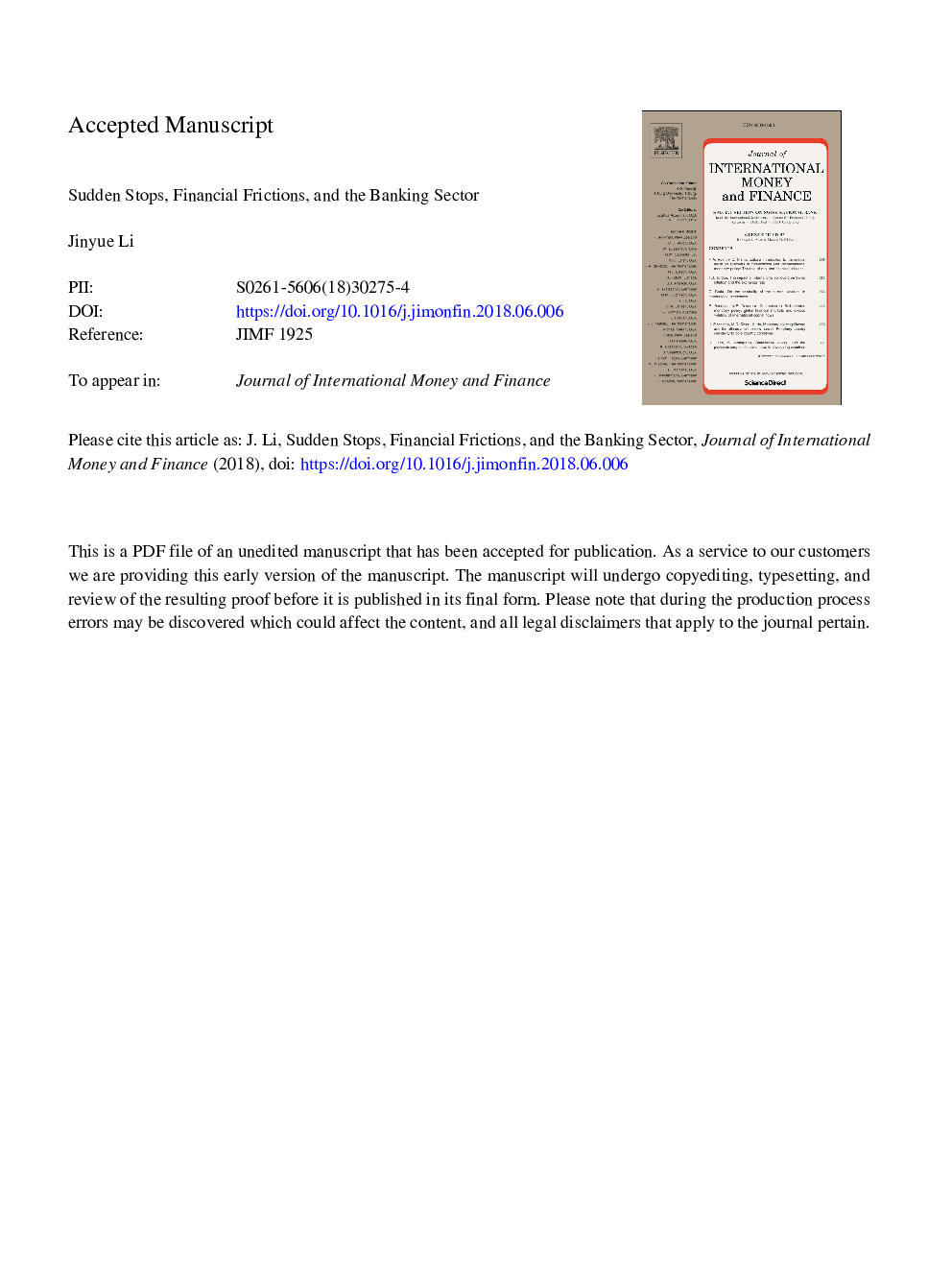| Article ID | Journal | Published Year | Pages | File Type |
|---|---|---|---|---|
| 7364990 | Journal of International Money and Finance | 2018 | 27 Pages |
Abstract
Financial crises typically feature a large fall in total factor productivity (TFP). In emerging economies, about 40% of domestic credit is provided by banks. Theories have largely focused on how exogenous changes in domestic interest rates impact the economy. In this paper, I explore the role of banks' intermediation in exacerbating allocative inefficiency. I build a small open economy model, in which banks are the only domestic agents with access to international capital markets. During sudden stops, a shock to the world interest rate decreases banks' credit supply and raises the domestic interest rate on loans. Firms with working capital financing needs experience an increase in the cost of production. This worsens the misallocation and generates an endogenous fall in TFP and output. The model is calibrated to Mexico before the 1995 crisis. The model predicts a 6.9% fall in TFP and a 5% fall in investment to GDP ratio, which closely matches the effects observed in the data.
Related Topics
Social Sciences and Humanities
Economics, Econometrics and Finance
Economics and Econometrics
Authors
Jinyue Li,
